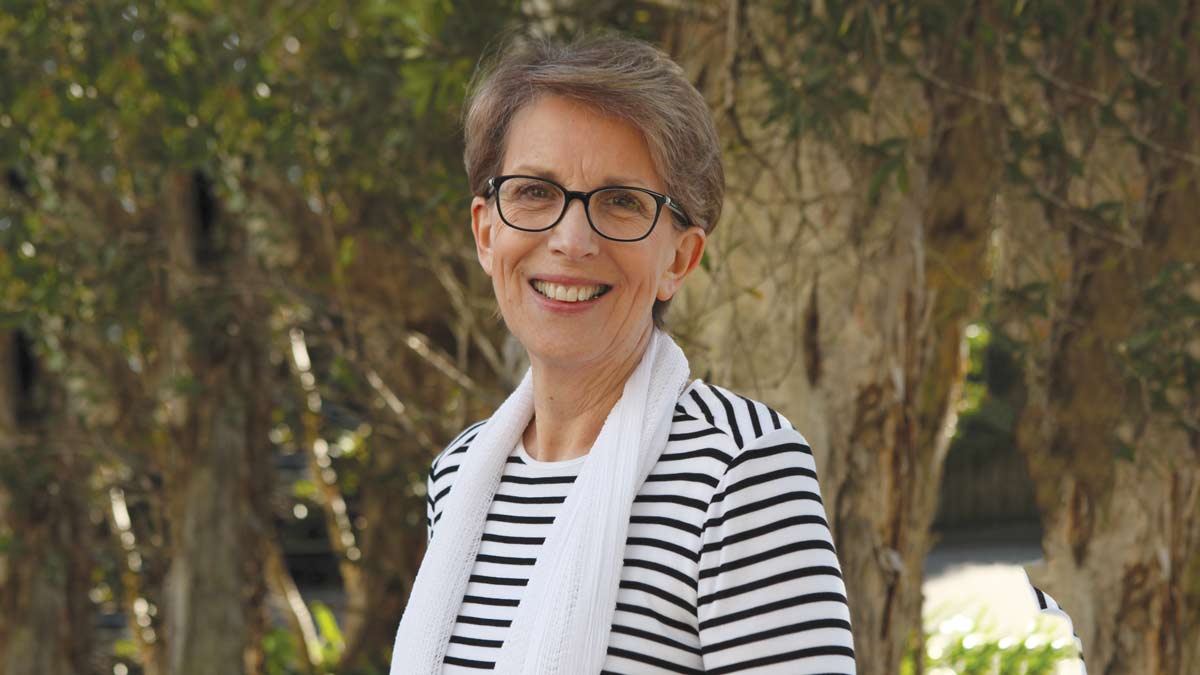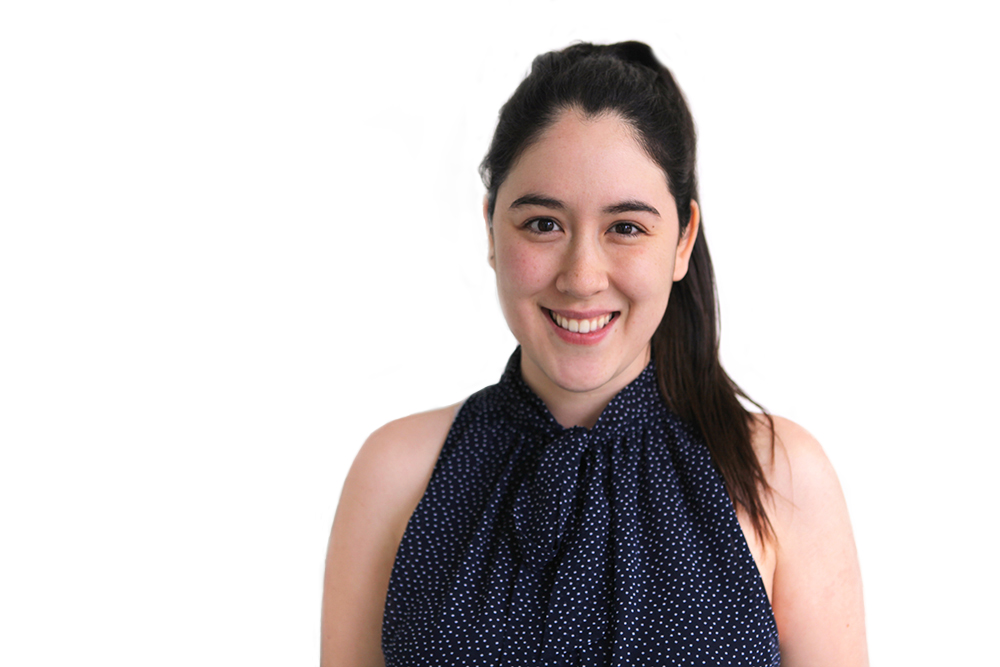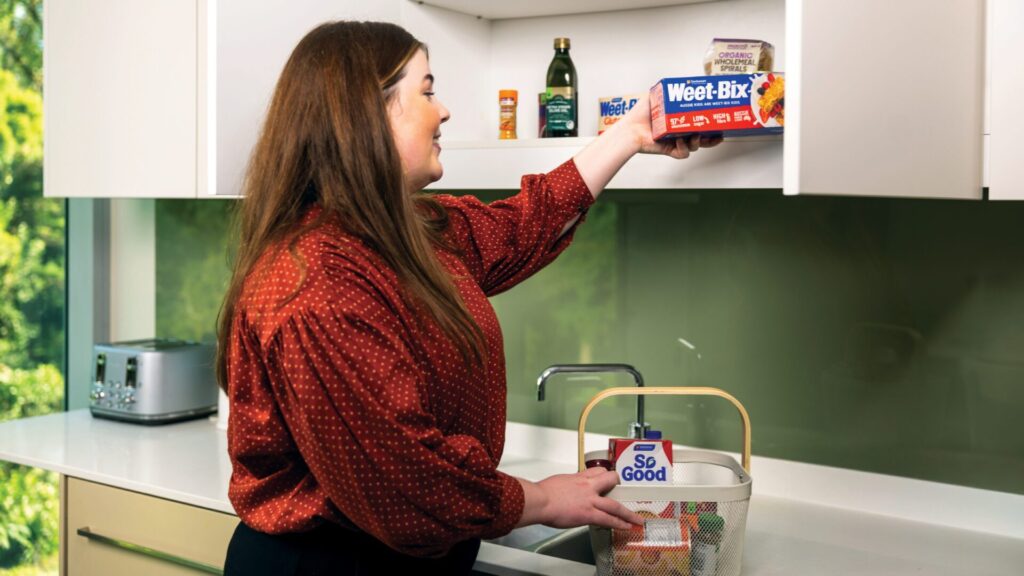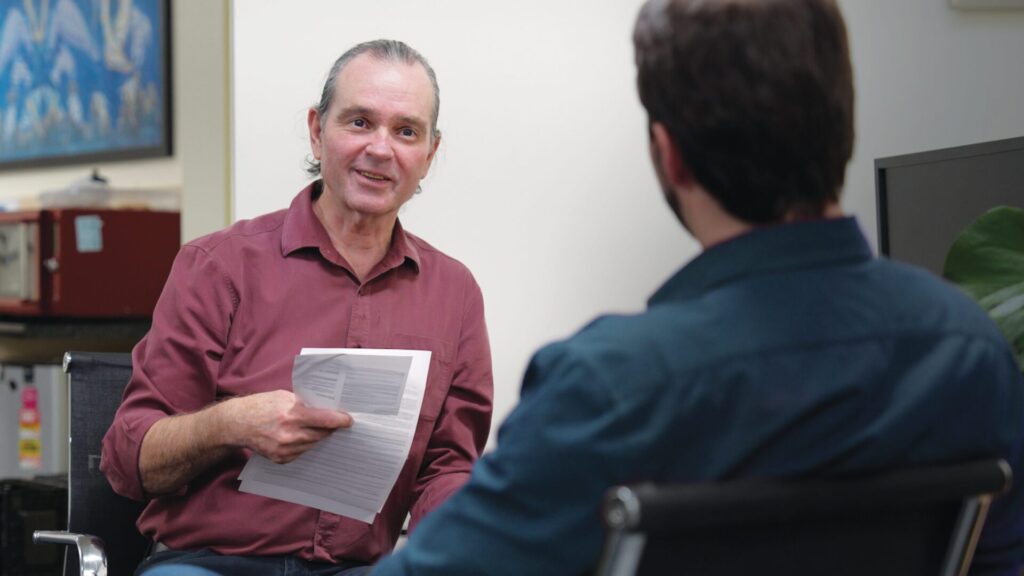Name: Angela Saunders
Job: Dietitian and nutritionist
Where: Sanitarium Health & Wellbeing, Berkeley Vale, NSW
What do you do?
I’m a senior dietitian, but my role at Sanitarium is actually in science and advocacy. The advocacy part of my role focuses on prevention—how to prevent chronic disease by eating plant-based food. We have an amazing health message, which is now backed up by 50-plus years of research. And the science part of my role sees me working on some special projects that are very much research based—much of what I do is looking at what would be useful and evidence based in terms of what our company plans to do with food products.
Can you give us an example?
Well, recently, Sanitarium was considering including Vitamin D as an additional fortification in So Good. So my project was to research the differences between the two forms of Vitamin D—D2 and D3—to see whether they were both equally beneficial to the body and absorbed. Through a lot of literature and study, I was able to discover that Vitamin D2—derived from a plant source—is in fact as easily absorbed in our bodies as Vitamin D3—derived from an animal product—is. We started fortifying So Good with Vitamin D2 last year, but to do so, we had to have really good, strong evidence, and that’s where I come in.
What’s the difference between a dietitian and a nutritionist?
Good question! Not everyone can call themselves a dietitian—only those who have studied at university, have a degree in dietetics and then become accredited. Unfortunately, on the other hand, anyone can call himself or herself a nutritionist. There are lots of programs on the web that offer you a certificate in nutrition or a diploma in nutrition, which may not be accredited, so who knows what you’re going to be taught. That’s not to say the term “nutrition” is bad—the actual Bachelor degree is in both nutrition and dietetics. The nutrition part of it is learning about how food affects our body and the importance of the nutrients in foods. The dietetic part of the degree and job is how we treat someone with a chronic lifestyle problem—what kind of diet does a diabetic need, for example. It’s the therapeutic side of nutrition. So I’m both a dietitian and a nutritionist.[pullquote]
What inspired you to become a dietitian?
I was working as a secretary but I was unsettled and knew I wanted to do something else. I started attending lots of health and nutrition programs run by the then health director of the South Pacific Division, Bertha Shollenberg, and loved them so much that one day she said to me, “Angela, we need more Adventist dietitians in Australia. You need to go to Loma Linda and study nutrition.” And she was right—where else to study vegetarian nutrition than Loma Linda University (USA)? At first, I wondered how I’d pay for it, but God took care of that too—the Division was able to arrange a scholarship for me, which helped significantly in assisting with my tuition fees.
After finishing at Loma Linda, I worked at Sydney Adventist Hospital for 15 years as a clinical dietitian, helping people with chronic lifestyle diseases such as diabetes and serious heart problems to get well. That’s why prevention and advocacy are so important to me—my advocacy role is not just writing a book chapter*, but travelling around churches speaking about plant- based diets.
Favourite thing about your job?
I just love the fact that as a Church we’ve been talking about the importance of eating plant-based diets for more than 150 years and that now we can say very clearly that there is significant evidence behind this. Also, there is a growing trend around vegetarian and vegan diets, and the fact that people want to eat more plant-based diets. For someone who has studied, focused and advocated for this for 30 years, it’s very rewarding, reassuring and affirming to be able to work in an area that lots of other people are getting on board and interested in.
Biggest lesson you’ve learned?
Honestly, it’s that you never stop learning. There’s always something new to learn and certainly in the area of nutrition, it’s a growing science. It’s a science that builds on what we knew yesterday and we will build on that again tomorrow.
Any advice for future dietitians?
Well, first off, you have to be very interested in food! Not just eating or cooking it—learning how food affects our bodies. If you’re working in the clinical area, you have to love people. If you’re working as a dietitian in a food business like Sanitarium, it means that you have a very significant voice in the quality of the products produced. Could you have the opportunity to make a real difference? Absolutely. Nutrition and dietetics is a great area, especially if you’ve got a curious mind. You’re constantly learning, researching, trying to keep up with the latest studies. But above all, it’s about having a passion for what you do, for what you believe and helping people to achieve optimum health.
*Angela recently contributed to a chapter in the book Impact of Meat Consumption on Health and Environmental Sustainability, which won first place in the Sustainable Food category at the Gourmand World Cookbook Awards.






